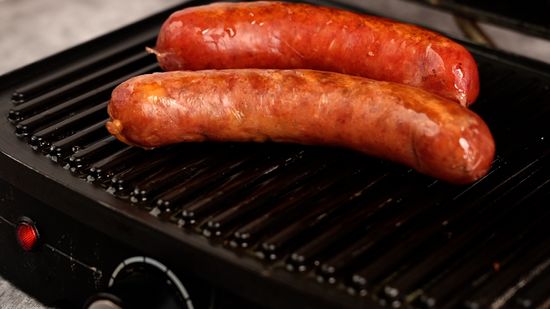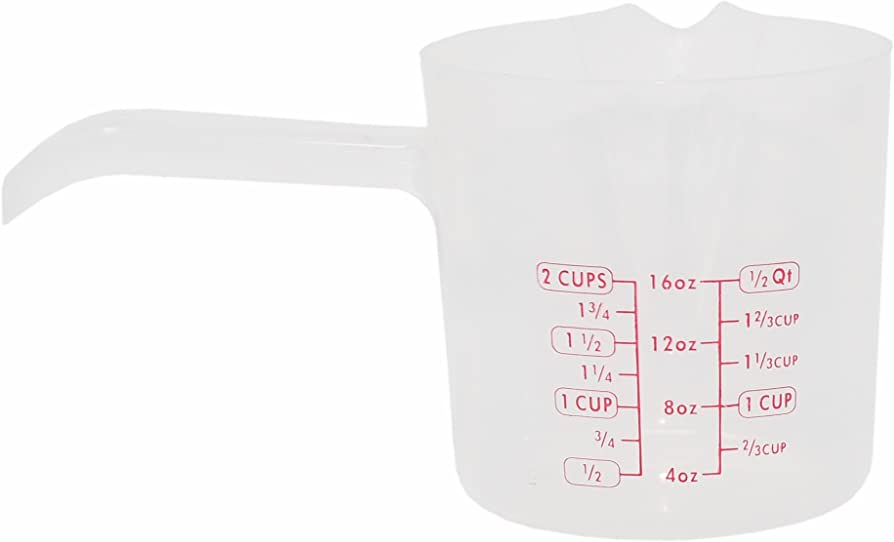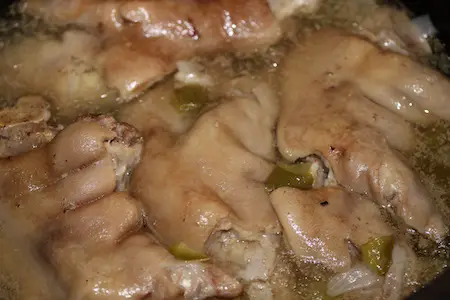Can You Use Cooking Oil to Lubricate the Bearings
Introduction
Lubrication is an essential aspect of machinery maintenance, and it involves the use of different materials to reduce friction between moving parts and protect components from wear and tear. One common type of lubricant used in various equipment is oil, which comes in different forms, including cooking oil. However, a critical question remains: can cooking oil be used to lubricate bearings effectively?
This article explores this question by providing an overview of cooking oil and bearings, discussing the factors that affect the suitability of cooking oil as a bearing lubricant, examining its pros and cons, stating best practices for using it as a lubricant, and analyzing industries that use it for this purpose.
What is Cooking Oil?
Cooking oil refers to a liquid or semi-solid fat used in food preparation. Depending on the source material, it can come in different forms with various properties such as taste, color, odor, and nutritional value. The most common types of cooking oils are vegetable oils like olive oil, sunflower oil, coconut oil, corn oil, canola oil, palm oil, and sesame oil.
What Are Bearings?
Bearings are machine components that enable smooth movement between two parts. They consist of races (inner and outer surfaces) and rolling elements (balls or rollers) that support loads and move relative to each other while reducing friction. Bearings come in different designs such as ball bearings, roller bearings, needle bearings, tapered bearings, ceramic bearings, spherical bearings, journal bearings, thrust bearings among others.
Can Cooking Oil be Used as a Lubricant for Bearings?
The answer is not a straightforward yes or no since the efficacy of cooking oil as a bearing lubricant depends on several factors such as:
Temperature Range
Cooking oils have varying boiling and melting points that affect their performance in different temperature ranges. For example, some types of cooking oil may thicken or solidify at low temperatures, causing insufficient lubrication, while others may break down or evaporate at high temperatures, leading to inadequate protection. Therefore, cooking oil may be suitable as a bearing lubricant for low-speed and low-temperature applications where it can maintain its viscosity and fluidity without decomposing.
Weight-Bearing Capacity
The load-bearing capacity of a bearing refers to the maximum force it can handle without deformation or failure. Using cooking oil as a lubricant may not provide adequate load-bearing capacity compared to conventional lubricants designed for high-pressure applications. For instance, cooking oils may have low film thickness and shear strength that cannot withstand heavy loads without rupturing. Therefore, depending on the application requirements, using cooking oil as a bearing lubricant may not be feasible.
Corrosion Protection
Bearings are susceptible to corrosion caused by water ingress, electrochemical reactions, and other environmental factors. To prevent corrosion, lubricants should contain additives that act as anti-corrosion agents and oxidants to protect surfaces against rust and degradation. Cooking oils do not have the same level of corrosion protection as conventional bearing lubricants since they lack specific additives designed for this purpose.
Chemical Stability
Chemical stability refers to the ability of a lubricant to maintain its chemical structure and properties under various conditions. Cooking oils may contain impurities that can react with other components of the system, leading to contamination and degradation of performance. Additionally, they are prone to oxidation due to exposure to air or heat, resulting in poor efficiency and increased wear. Therefore, using cooking oil as a bearing lubricant in harsh environments or for extended periods may not be advisable.
Comparison between Cooking Oil and Conventional Bearing Lubricants
Cooking oil has some similarities to conventional bearing lubricants in terms of chemical composition and uses, but there are also significant differences. Below is a comparison between the two:
Cooking Oil
- Low viscosity
- Poor load-bearing capacity
- Inexpensive
- Biodegradable
- No specific additives
Conventional Bearing Lubricant
- High viscosity
- Good load-bearing capacity
- Expensive
- Harmful to the environment if not disposed of correctly
- Contains specific additives to enhance performance (anti-wear, anti-corrosion, and extreme pressure additives)
From the above comparison, it is evident that conventional bearing lubricants are more suitable for high-performance applications than cooking oils.
Advantages and Disadvantages of Using Cooking Oil as a Bearing Lubricant?
Advantages
Cost Savings: Cooking oil is less expensive than conventional bearing lubricants, providing significant cost savings for equipment maintenance.
Availability and Ease of Access: Cooking oil is readily available in most places where food is prepared, making it convenient to use as a short-term solution if other lubricants are not accessible.
Environmentally Friendly: Some cooking oils have biodegradable properties, making them an environmentally friendly option for machines that require eco-friendly components.
Some Oils Have High Viscosity Suitable for Specific Applications: Certain types of cooking oils have high viscosity that can be useful in some applications, such as gearboxes and hydraulic systems. For example, castor oil is a high-viscosity oil that can provide effective lubrication in machines that require it.
Disadvantages
Short Lifespan: Cooking oils have a shorter lifespan than conventional bearing lubricants due to their low thermal resistance and chemical stability.
Not Suitable for High-Speed or High-Pressure Applications: Cooking oil may not be capable of providing adequate load-carrying capacity and film thickness at high speeds or high pressures, leading to premature failure of machinery.
Risk of Corrosion: Some types of cooking oil may lack the corrosion inhibitors present in other lubricants, potentially exposing machinery components to rust and damage.
Contamination by Food Particles: Machines that use cooking oil as a bearing lubricant may be at risk of contamination with food particles, leading to hygiene issues that can affect system performance adversely.
Best Practices for Using Cooking Oil as a Bearing Lubricant
If you choose to use cooking oil as a bearing lubricant, consider the following best practices:
- Select the right type of cooking oil depending on the application requirements (viscosity, temperature range, chemical composition).
- Clean the system thoroughly before introducing the cooking oil to prevent contamination or depletion of performance.
- Apply only the required quantity of cooking oil to avoid over-lubrication or under-lubrication.
- Monitor the system’s performance regularly to detect any signs of wear or degradation caused by the cooking oil.
- Replace the cooking oil frequently to maintain its effectiveness and prevent contamination or corrosion buildup.
Case Studies: Examples of Industries That Use Cooking Oil as a Bearing Lubricant
Agricultural Equipment
Some farmers use cooking oils such as vegetable oil or canola oil to lubricate tiller or mower bearings. These oils are readily available and can provide short-term lubrication for machines until a suitable bearing lubricant is obtained. However, due to the harsh environments in which agricultural equipment operates, cooking oil may not be the best long-term solution.
Home Appliances
Some home appliances like blenders, mixers, and juicers may use cooking oil as a bearing lubricant since it is widely accessible and inexpensive. However, the low viscosity of cooking oil may lead to insufficient protection against wear and tear in high-speed applications.
Food Processing Machines
Since cooking oil is harmless if consumed by humans, some food processing machines that require lubrication use cooking oil instead of conventional lubricants. However, care must be taken not to contaminate the machinery with food particles or over-lubricate the bearings since this can affect food quality.
Conclusion: Is It Recommended to Use Cooking Oil as a Bearing Lubricant?
In conclusion, while cooking oil has some advantages as a bearing lubricant such as cost savings, environmental friendliness, availability, and ease of accessability for certain applications. Its disadvantages outweigh its benefits for high-performance machinery that requires adequate load-carrying capacity, anti-corrosion protection, chemical stability and high temperature resistance. Therefore, before resorting to using cooking oil as a bearing lubricant, it’s essential to understand the properties of the cooking oil and the specific requirements of your application and select the most suitable lubricant accordingly.
References:
- “Lubrication basics.” Mobil™ Bearing & Circulating Oils: Lubricants | ExxonMobil. Accessed 03 Sep. 2021.
- “What Are Cooking Oils?” The Spruce Eats, Accessed 03 Sep. 2021.
- “Deep groove ball bearings.” SKF online catalog. Accessed 03 Sep. 2021.
- Shah, Ramesh K., et al. “Use of biodegradable oils as lubricants for bearing applications.” Renewable and Sustainable Energy Reviews, vol. 14, no. 7, Elsevier Ltd, Aug. 2010, pp. 2046–55, doi:10.1016/j.rser.2010.04.034.
Can cooking oil really be used as a bearing lubricant?
Yes, cooking oil can be used as a bearing lubricant since it is an oil-based liquid that can provide adequate lubrication to mechanical parts. However, it is not the best option for bearings since it can turn rancid and gum up with time.
What kind of cooking oil would work best on bearings?
Vegetable oils like canola, sunflower, or soybean oil can be great options for lubricating bearings due to their low viscosity and high flash point. They are also less likely to leave residue or harm the bearings’ materials.
Is using cooking oil as a bearing lubricant safe?
While cooking oils may work in some cases, they are not a good choice for crucial machinery since they lack the necessary additives to protect against wear and tear caused by friction and temperature changes. Always consult your machine’s operating manual and use approved lubricants.
How often should I replace my cooking oil-based bearing lubricant?
Cooking oils tend to oxidize faster than synthetic lubricants, leading to gumming and viscosity breakdown. Therefore, they require more frequent replacement, depending on usage frequency and operating conditions. Always monitor your machine’s performance and schedule regular maintenance checks.







